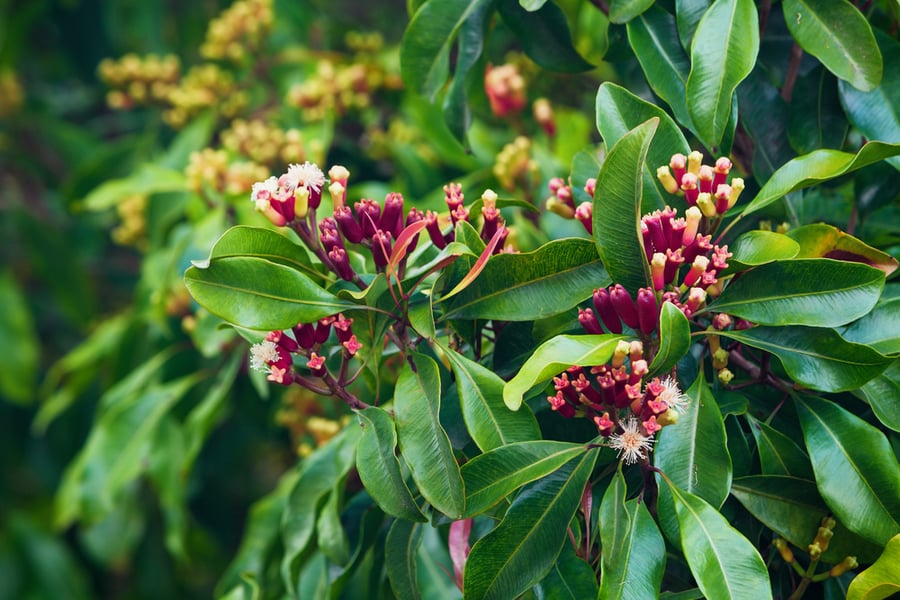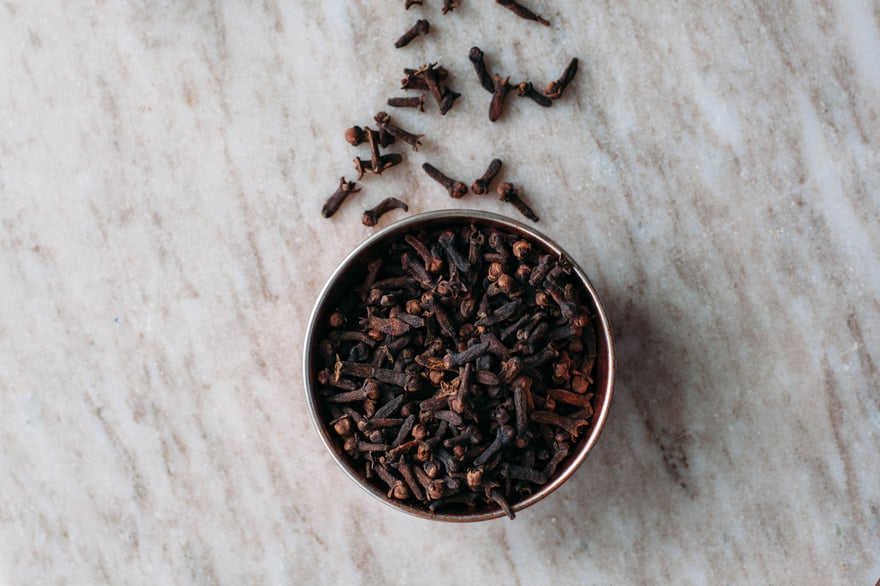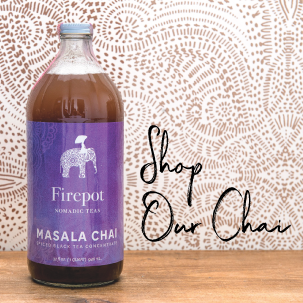Looks can be deceiving. Sometimes, the biggest impact comes from the smallest source and that’s never truer than with the tiny clove. Cloves are small dried flower buds resembling tiny spikes. From an evergreen tree appropriately called the “clove tree,” cloves may be small but are well known for the size of their taste and scent, and they pack a punch when it comes to healthful qualities. Its wide array of uses makes it a popular choice in popular food and beverages year-round.
Battles Fought Over the Tiny Spice
Native to Indonesia, cloves have been used for thousands of years. The clove business was so lucrative that various wars broke out in both medieval and modern periods for control of the crop. Europe, China, India, Persia, Africa, the Netherlands and the Indonesian islanders where clove trees originated have all competed for a monopoly on the market for these tasty little buds. They knew that it was not only valued for cooking, but also for its health benefits.

Cloves Contain Antioxidants
Like many flower buds, cloves contain a significant amount of the antioxidant vitamin C. They also contain vitamin K, magnesium, calcium, and manganese. Manganese is a mineral that's essential for the production of healthy bone tissue, and just one teaspoon of ground cloves contains 30% of the recommended amount for an average adult.
Cloves contain Eugenol
Cloves also contain a compound known as eugenol, which also has serious antioxidant properties and is the ingredient responsible for the trademark aroma and flavor of cloves. Eugenol is used in combination with zinc derivatives for certain restorative dental procedures. Scientific studies suggest that eugenol may help with:
- Enhance Liver Health
- Stabilize Blood Sugar Levels
- Reduce Peptic Ulcers

Clove Oil
Clove oil is frequently used for relaxation purposes in aromatherapy applications. Clove oil has long been an effective home remedy for toothaches and other dental pain and may be instrumental in improving oral health as it kills the bacteria commonly associated with the development of gum disease. In fact, an ancient practice in China was that a person was required to have a few cloves in their mouths to sweeten their breath before approaching the emperor!
Clove In Cooking
With such an impressive resume, the clove also makes its presence known in the kitchen. Its strong pungent aroma and taste make it a welcome component in a wide array of dishes – everything from Indian dishes and barbecue sauces to pumpkin pie and gingerbread. They are drizzled over sweet potatoes, sprinkled over squash, ground into maple syrup, blended into mulled wine, cider and eggnog, and frequently spotted adorning the holiday ham. And last but not least…they are a tasty part of what makes Firepot Chai taste so magical.







Leave a comment
Comments will be approved before showing up.